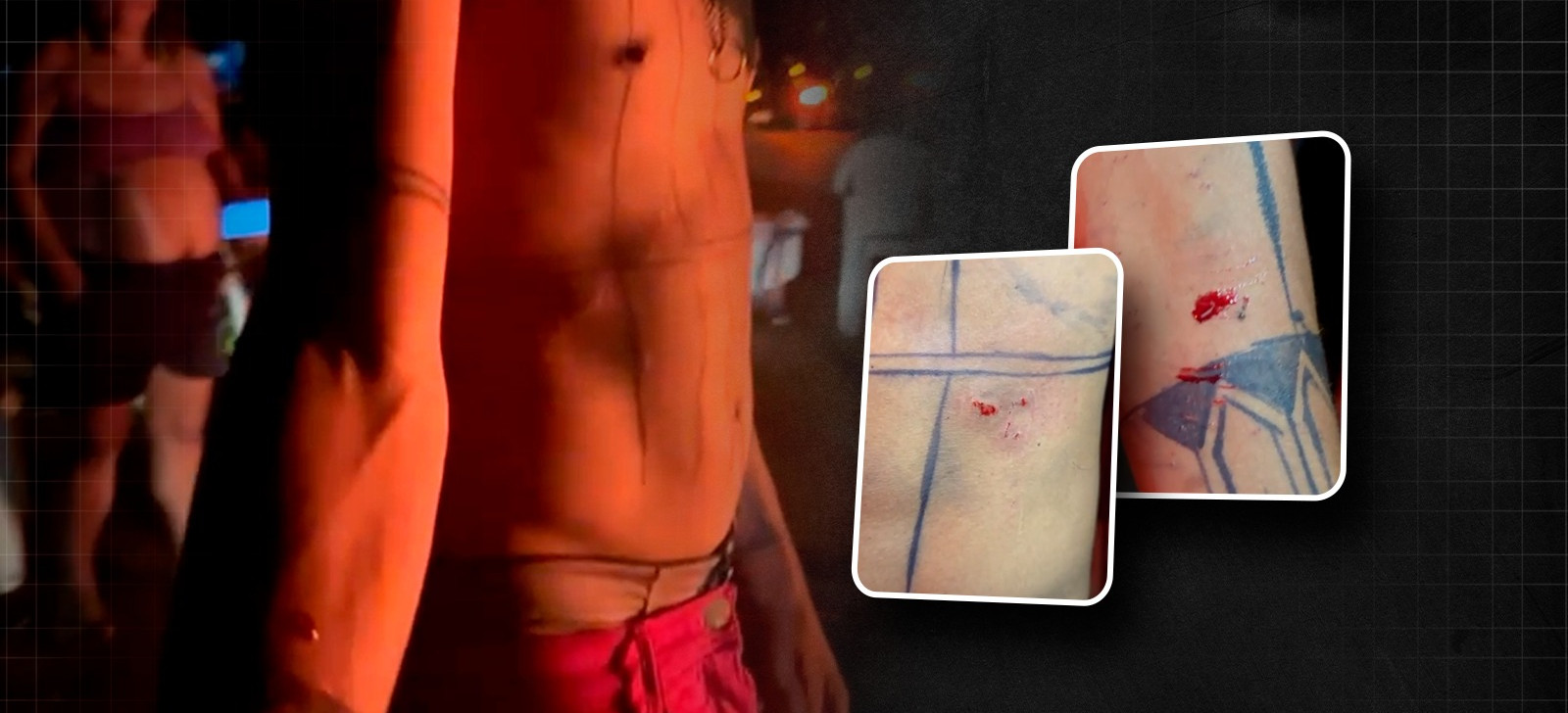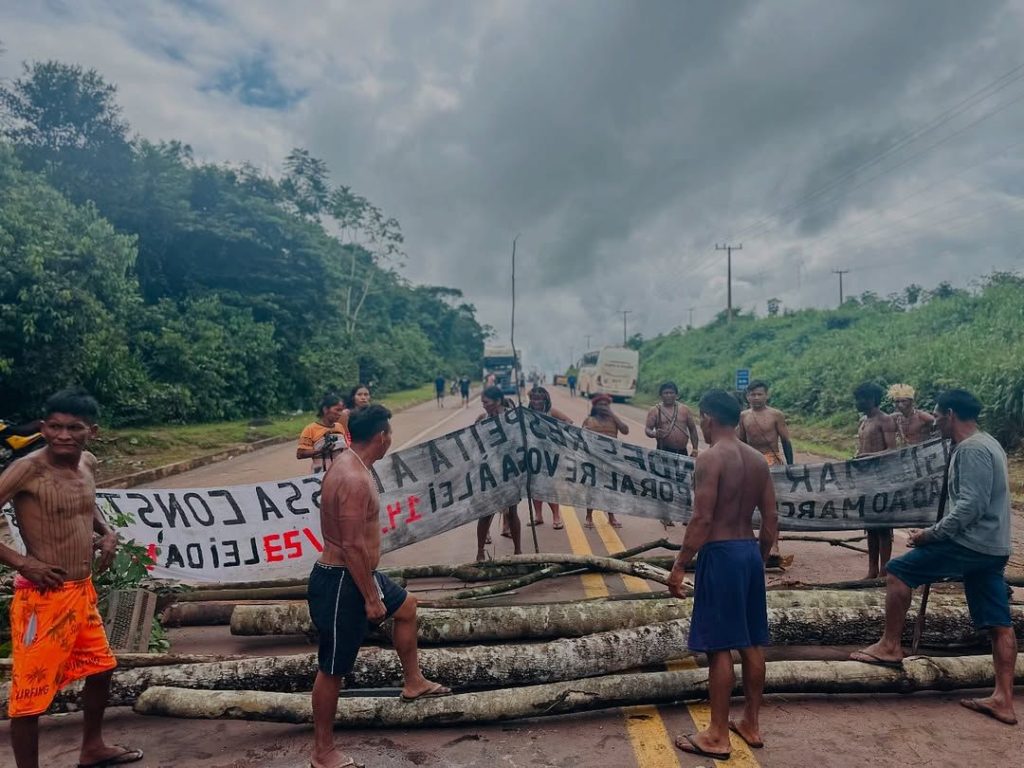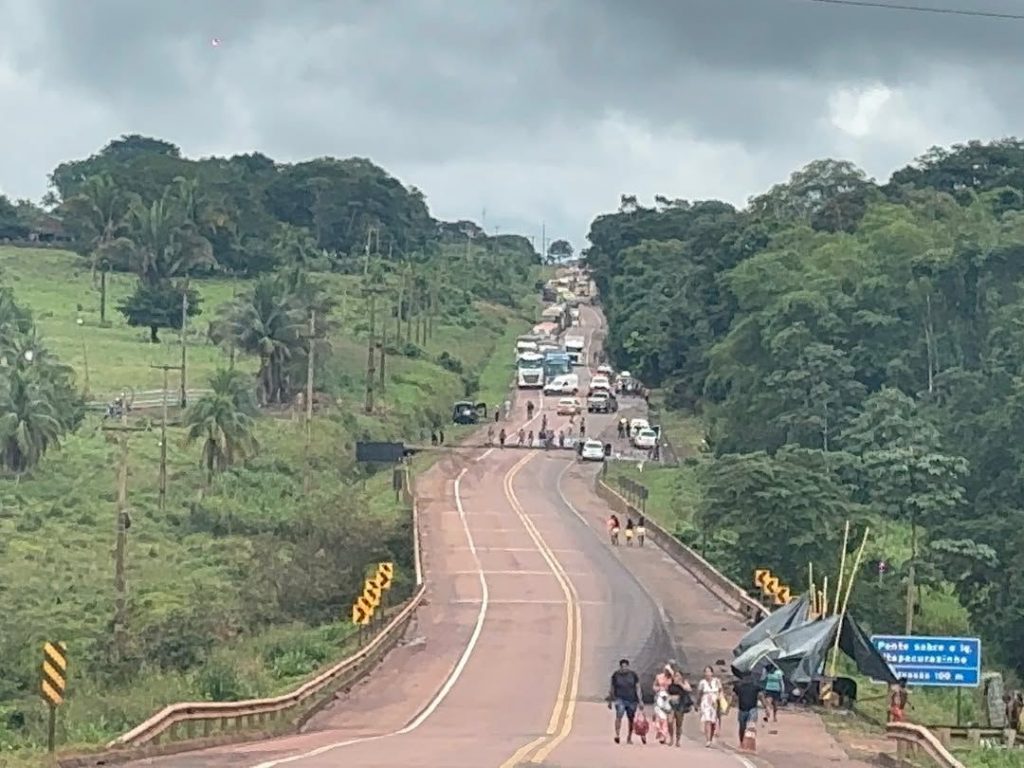In Brazil, Indigenous People block highway for the third day and denounce violence
27 de March de 2025

By Fabyo Cruz – From Cenarium
BELÉM (PA) – The blockade on the BR-163 highway, carried out by the Munduruku Indigenous people in Pará, has reached its third day this Thursday, 27th, in protest against Law 14.701, which formalises the Temporal Framework Law. In addition to demanding territorial rights, the demonstrators are denouncing incidents of violence during the mobilisation. Speaking to CENARIUM, Indigenous individuals reported that drivers attempted to force their way through the blockade, threw stones at those present, and threatened to run over protesters, including children and the elderly.
The demonstration is taking place near the municipality of Itaituba, 1,304 kilometres from Pará’s capital, Belém, and has intensified as the conciliation hearing on the law, postponed to this Thursday, 27th, at the Supreme Federal Court (STF), approaches.
On Tuesday, 25th, the Indigenous protesters erected barricades using tree trunks, branches, and burning tyres, along with banners and placards criticising Minister Gilmar Mendes, the rapporteur of the conciliation proposal under review by the STF. One of the messages read: “Gilmar Mendes, respect our Constitution. No to the Temporal Framework . Repeal Law 14.701/23, the law of death.”
The protest denounces the proposal under debate in the Court, which, according to Indigenous leaders, maintains provisions that restrict the demarcation of lands and favour the interests of agribusiness and mining.
Indigenous leader Alessandra Munduruku reported that the protest had gained reinforcements with the arrival of Indigenous people from the Lower Tapajós and the Arapiuns ethnic group. However, the mobilisation has been targeted by attacks. “They tried to break through the blockade. In fact, they drove over the barriers. They threw stones, injuring a young man in the arm,” she told the reporters.

According to her, demonstrators were also harassed by lorry drivers attempting to cross the blockade. “They set off firecrackers and started insulting us. Then they tried to run over one of the warriors with a lorry. There are many children here, mothers with babies, and they seemed to have no concern for that. They all seemed drunk, high, I don’t know what they were on,” denounced Alessandra.
The Situation
The Temporal Framework thesis (Marco Temporal) establishes that Indigenous peoples can only claim lands they occupied or were disputing on 5 October 1988, the date of the promulgation of the Constitution. However, in September 2023, the STF declared the proposal unconstitutional. Even so, the National Congress approved Law 14.701/23 after overriding key vetoes by President Luiz Inácio Lula da Silva.
Amid the deadlock, the STF established a commission to draft a new version of the legislation. The process is under the rapporteurship of Gilmar Mendes and is expected to reach a conclusion by 2 April. Thursday’s hearing will be held in a hybrid format and will include suggestions for improving the draft bill.
Resistance

For the demonstrators, the negotiation led by the Court does not meet Indigenous rights. Alessandra Munduruku stated that the movement is demanding changes to the proposed legislation, which includes provisions allowing mining and the leasing of Indigenous lands, as well as preventing communities from being consulted.
The Munduruku affirm that they will not back down until their rights are secured. Alessandra emphasised that the community has left their homes and is on site with children, young people, and the elderly to resist. According to her, the Indigenous people will not give up their territory.

